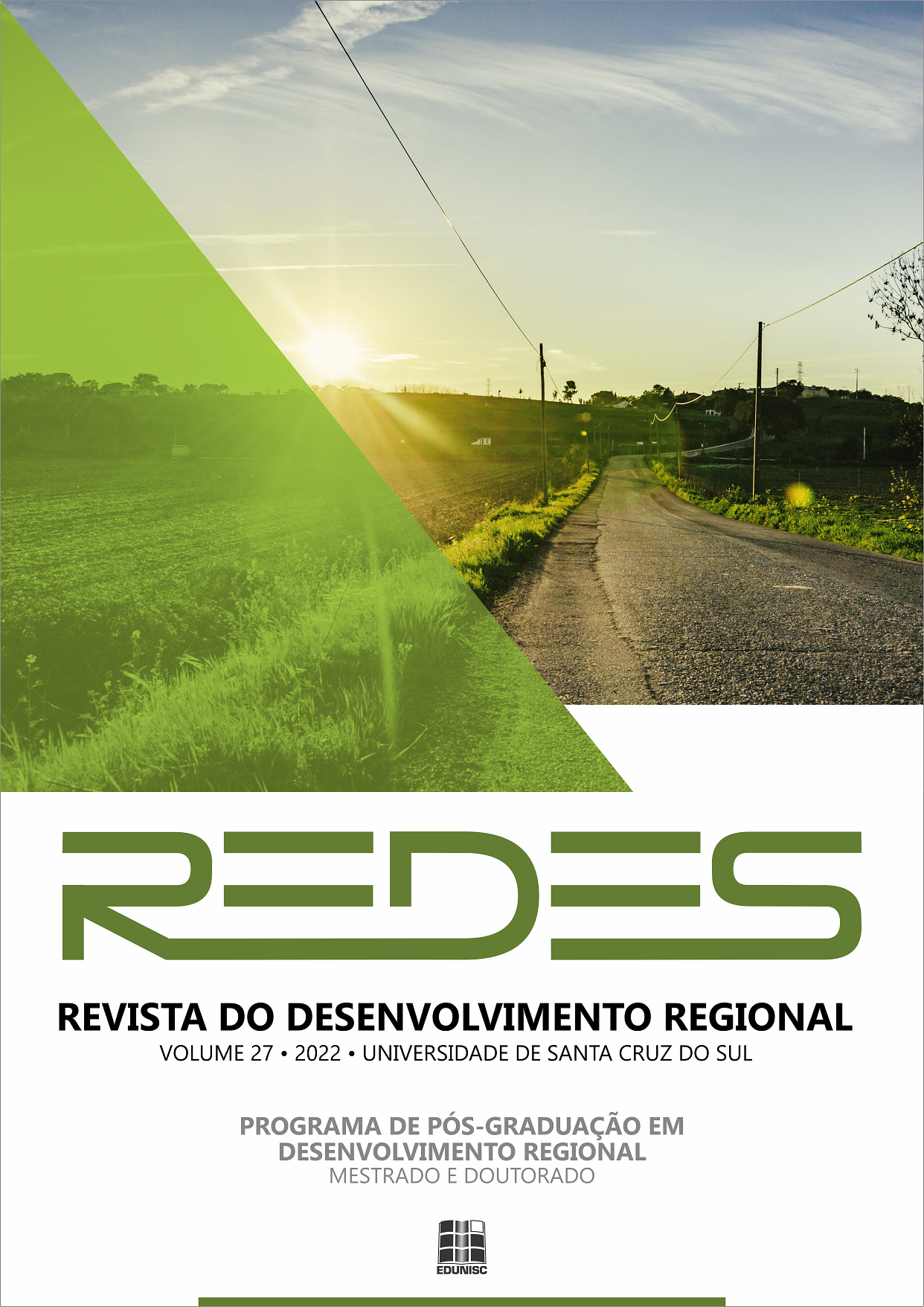Las Patronas and their agency around Central American Migration in transit through Mexico
DOI:
https://doi.org/10.17058/redes.v27i1.17359Keywords:
Las Patronas, Agency, Transit migration, Experience, Multi-sited ethnographyAbstract
In a context in which migration policies are increasingly severe, searching to limit the mobility of people, especially those who have non-business or high-income tourism purposes, discrimination, criminalization, and violence emerge towards those who do not have the "established requirements". As a counterbalance, the emergence of civil society collectives that build support or assistance networks for vulnerable migrants is worth noting. With the information obtained through a multi-sited ethnography and taking as analytical reference the agency and experience proposed by Norman Long, this article presents the case of Las Patronas and their actions around Central American transit migration through Mexico. The women, Las Patronas, are transforming the reality of migrants in transit and their community. Their actions on behalf of migrants in transit have gradually become a focus (and a role model) for other groups, volunteers, and even institutions at the national or international levels. Hence, its community has little by little benefited from the actions of Las Patronas and external agents.
Downloads
References
ANGUIANO, M. E., & CORONA, R. Flujos migratorios en la frontera Guatemala-México. México: El Colegio de la Frontera Norte/Instituto Nacional de Migración, 2009.
ARANDA, A. Estigma y discriminación: narrativas de migrantes centroamericanos en tránsito por México hacia Estados Unidos. 2016. 147f. Tesis (Maestría en Estudios Culturales) – El Colegio de la Frontera Norte, Tijuana, 2016.
CASTILLO, M. A. Fronteras, migración y seguridad en México. Alteridades, v.15, n. 30, p.51–60, 2005.
COLEF. Boletín de indicadores EMIFSUR 2018-2020. México: El Colegio de la Frontera Norte. 2020. Disponible en: https://www.colef.mx/emif/datasets/indicadores/Emif%20Sur%20Indicadores%20Trimestrales%20Enero-Marzo%202020.pdf Accesado el 08 de enero de 2022.
DUBET, F. Sociologie de l’expérience. Paris: Le Seuil, 1994.
GARCÍA-ZAMORA, R. Migración internacional, tratados de libre comercio y desarrollo económico en México y Centroamérica. En: VIDAL, G.; GUILLÉN, A.(comp). Repensar la teoría del desarrollo en un contexto de globalización. Homenaje a Celso Furtado. Buenos Aires: CLACSO, 2007, p. 313-335.
IOM’s GMDAC. Migración irregular. Portal de Datos Mundiales sobre la Migración. 2020. Disponible en: http://www.migrationdataportal.org/es/themes/migracion-irregular Accesado el 15 de octubre de 2021.
LI NG, J. Mapa 2020 de casas del migrante, albergues y comedores para migrantes en México, 2020.
LONG, N. & ROBERTS, B. Miners, peasants and entrepreneurs: Regional development in the central highlands of Peru. Cambridge University Press, 1984.
LONG, N. & LONG, A. Battlefields of knowledge: the interlocking of theory and practice in social research and development. Routledge, 1992.
LONG, N. Du paradigme perdu au paradigme... retrouvé? Pour une sociologie du développement orientée vers les acteurs. Bulletin de l’APAD, n. 7, 1994.
LONG, N. Globalización y localización: nuevos retos a la investigación rural. En: DE GRAMMONT, H. (ed.). Nuevos procesos rurales en México: teorias, estudios de caso y perspectivas. México, 1995, p. 25-47.
LONG, N. Sociología del desarrollo: una perspectiva centrada en el actor. San Luis Potosí: CIESAS, 2007.
LÓPEZ, V. Desarrollo, migración y seguridad: El caso de la migración hondureña hacia Estados Unidos. Migración y desarrollo, v. 11, n. 21, p. 65-105, 2013.
MADERA, J. & MARIN, J. (coords.). Migraciones y territorialidades: retos de los desplazamientos. México: Juan Pablos Editor / UAN, 2020.
MARCUS, G. E. Etnografía en/del sistema mundo. El surgimiento de la etnografía multilocal. Alteridades, n. 22, p. 111–127, 2014.
MARTÍNEZ, G., COBO, S. & NARVÁEZ, J. C. Trazando rutas de la migración de tránsito irregular o no documentada por México. Perfiles latino-americanos, v. 23, n. 45, p. 127–155, 2015.
NARVÁEZ, J. Hasta topar con pared. Historia reciente de la migración en tránsito por México. En: FERNÁNDEZ, A.; GANDINI, L.; GUTIÉRREZ, E. & NARVÁEZ, J. Caravanas migrantes: las respuestas de México. México: UNAM, 2019, p. 11-21.
ORGANIZACIÓN INTERNACIONAL PARA LAS MIGRACIONES (OIM). Encuesta de caracterización de personas migrantes en tránsito y necesidades humanitarias. México: OIM, 2018.
ORGANIZACIÓN INTERNACIONAL PARA LAS MIGRACIONES (OIM). Informe sobre las Migraciones en el Mundo 2020. Ginebra: OIM, 2019.
RED DE DOCUMENTACIÓN DE DEFENSORAS DE MIGRANTES (REDODEM). Migrantes invisibles, violencia tangible. Informe 2014. México, 2015.
RED DE DOCUMENTACIÓN DE DEFENSORAS DE MIGRANTES (REDODEM). Migrantes en México: recorriendo un camino de violencia. Informe 2016. México, 2017.
RED DE DOCUMENTACIÓN DE DEFENSORAS DE MIGRANTES (REDODEM). Procesos Migratorios en México nuevos rostros, mismas dinámicas. Informe 2018. México, 2019.
ROMERO, N. Discurso al recibir el Premio Nacional de Derechos Humanos 2013. 2013. Disponible en: https://www.facebook.com/meraspatronas/posts/discurso-al-recibir-el-premio-nacional-de-derechos-humanos-2013publicado-el-dici/10152127881716079/ Accesado el 24 de marzo de 2019.
SEN, A. Desarrollo y libertad. Buenos Aires: Planeta, 2000.
TREVIÑO, J. ¿De qué hablamos cuando hablamos de la “securitización” de la migración internacional en México?: una crítica. Foro Internacional, vol. 56, n. 2, p.253-291, 2016.
Audiovisuales
ARGÜELLO, L. (Dirección). La Patrona [Corto], 2009.
DIRDAMAL, T. (dirección). De nadie. Border crossing [Documental con historias de vida], 2005.
GONZÁLEZ, A. (Dirección). Llévate mis amores [Película], 2014.
Prieto, N. &, Castillo, F. (Dirección). El tren de las moscas [Corto], 2010.
Ultreras, P. (Dirección). La Bestia [Película], 2012.



